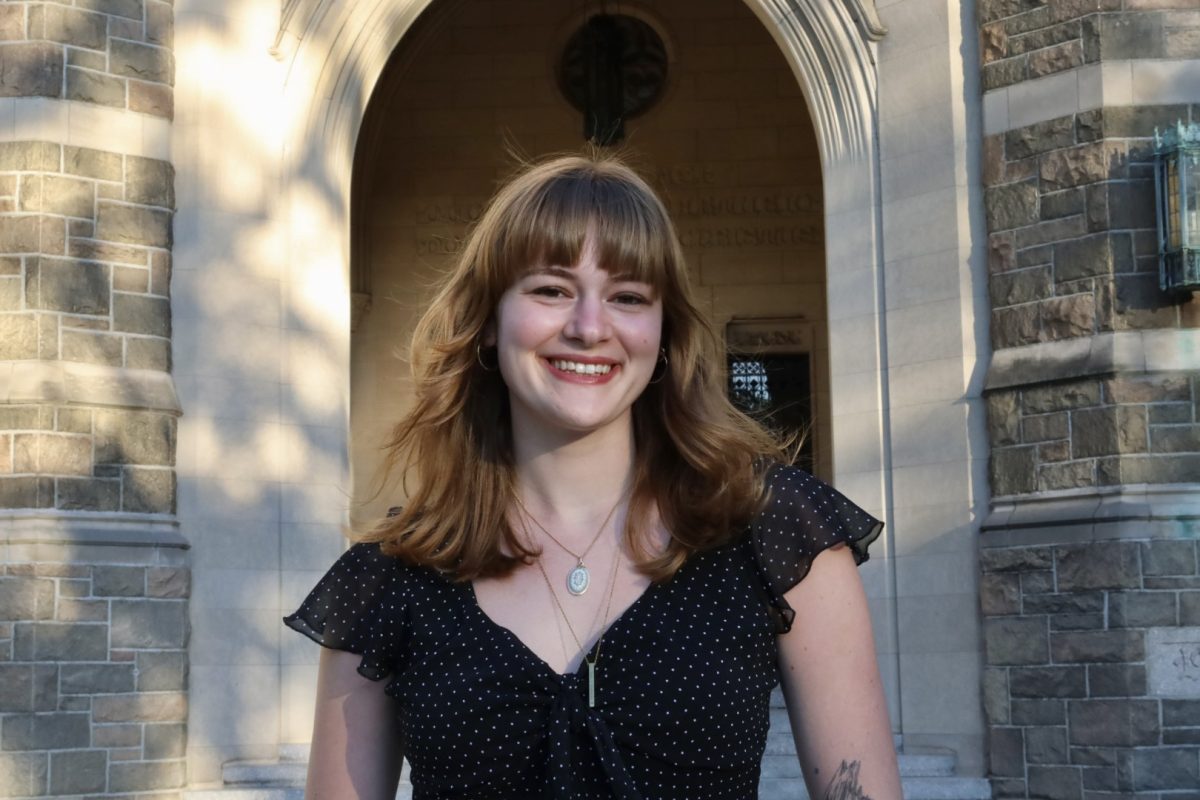For many students, this time of year is challenging at best. Factor in the events of the past week, and life quickly begins to feel impossible. As the end-of-semester realities this year begin to settle uncomfortably upon my shoulders, I have thought long and hard about why student life can feel so unbearable, and, more importantly, how to stop that feeling.
Academic unwellness refers to the mental and emotional instability that students feel as a result of stress and the pressure they feel to succeed in college. It has a slew of unhappy side effects, including fatigue, anxiety and depression. Nearly all university students are impacted by these feelings, although some find them more tenable than others.
The pressure to succeed comes in many forms and touches various areas of student life. It includes pressure to keep up with coursework and maintain good grades, but it also encompasses the pressure students feel to execute pre-professional goals like securing a good internship or becoming a club leader.
Academic unwellness is also tied to ever-rising tuition costs and student debt. The cost of undergraduate tuition and fees has risen roughly 180% since 1990, meaning that students today are shelling out thousands more dollars than the generations before them for the same or equivalent degrees. Not only do we act like this is normal, we tell ourselves it is necessary. We rationalize taking out thousands of dollars in student loans because it will help us get a job, meet people, learn, have the “college experience” and have fun while doing it.
But for a lot of students, none of this sounds fun. It doesn’t sound fun to the roughly 24,000 U.S. undergraduate students who will attempt suicide this year. It doesn’t sound fun to the 1,100 who will succeed in doing so.
So how do we cope? Many students, myself included, turn to different forms of escapism. This can include spending hours aimlessly scrolling on social media or playing video games into the early morning, all the while ignoring accumulating school work. Others turn to self-medication and substance abuse. A 2019 study published in an American Psychiatric Association journal found that 39% of college students engage in binge drinking, a higher percentage than people of the same age who do not attend college. The same study found that marijuana and cocaine use among college students are also on the rise.
It probably goes without saying that these coping strategies hurt more than they help. Drug and alcohol use is bad for memory, focus, energy and long-term physical health. University administrations often encourage students to seek other routes to mental wellness, typically by offering school counseling services as the first, and sometimes only, line of defense. It seems Fordham University’s Counseling and Psychological Services (CPS) is better than most other universities’ programs, but CPS will never be able to address the fundamental issues causing the student mental health crisis.
Scholar Mimi Khúc discusses some of these fundamental issues in her enlightening essay, “Touring the Abyss,” which I initially read for a class with the wonderful Dr. Diane Detournay. Khúc studies unwellness, especially among students of color who face unique challenges as they navigate institutions that are not built for their success. Khúc says that most university counseling programs are unequipped to handle the student mental health crisis because they fundamentally misunderstand student unwellness.
As part of a multi-year research project, Khúc traveled the United States asking college students and administrators to define wellness. Administrators consistently defined wellness as being able to “meet the expectations of the university” and follow the rules. For them, wellness meant being a good student. But for the students that Khúc surveyed, wellness meant so much more. The students sought community, genuine learning, freedom of expression and healing.
In her essay, Khúc summarizes her survey of students, condensing what they said into a particular definition of unwellness. “Unwellness is feeling like you have to do it all alone, like you have to always be productive, independent, high achieving, positive,” Khúc writes. “Unwellness is normalizing and romanticizing stress, glorifying busyness. Unwellness is to be a good student.”
Institutions of higher education see productivity as a sign of success and wellness, but that pressure to be productive is actively making students unwell. There is so much to do in these four precious years of undergraduate study, and it is in my nature to try to do it all. To be a good student. But I’m beginning to realize that being a good student isn’t worth sacrificing my own wellness.
It’s true that our time in college is precious. But so is our free time, our social time, our exploring-the-city time, our reading-for-fun time. Student mental health is precious, and we should be working just as hard to protect our mental health as we work to protect our grades.
I am trying, with much difficulty, to shift my perspective. I want to be more than a good student. I want to be a good person, a well-rounded, healthy, energetic, passionate young adult. And if being a bad student is what it takes to escape academic unwellness, to live a good life, I will prepare myself to make that sacrifice.






































































































































































































